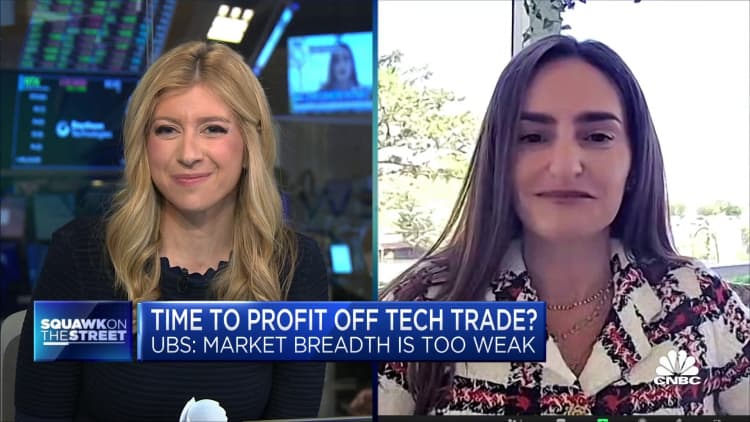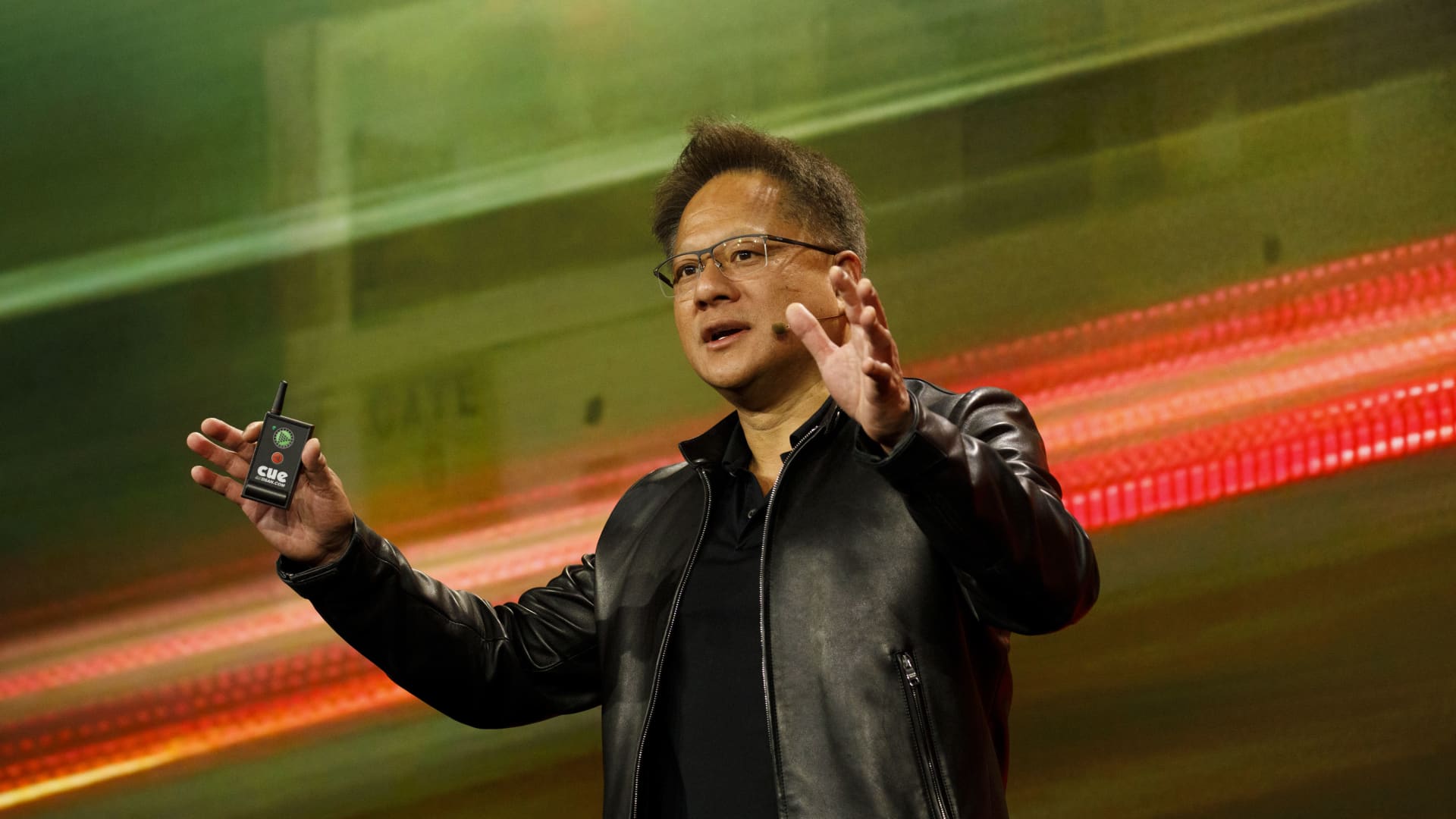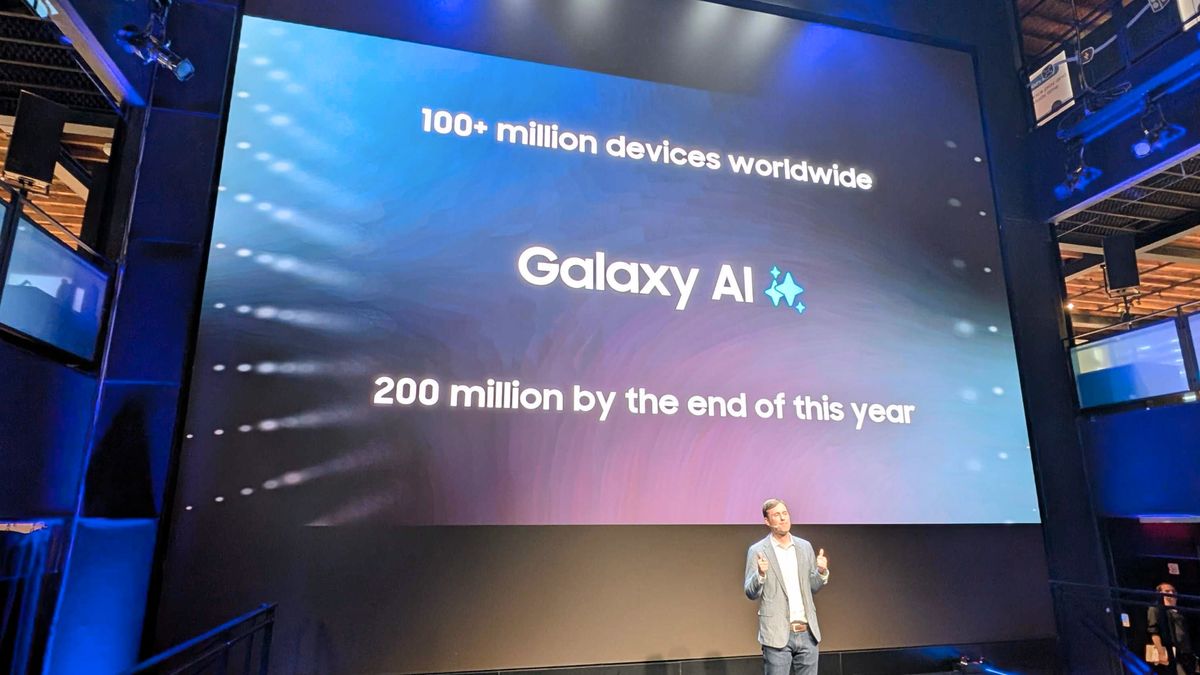Jen-Hsun Huang, president and chief executive officer of Nvidia Corp., speaks during the company’s event at Mobile World Congress Americas in Los Angeles, California, U.S., on Monday, Oct. 21, 2019.
Patrick T. Fallon | Bloomberg | Getty Images
Forget about the debt ceiling. Tech investors are in buy mode.
The Nasdaq Composite closed out its fifth-straight weekly gain on Friday, jumping 2.5% in the past five days, and is now up 24% this year, far outpacing the other major U.S. indexes. The S&P 500 is up 9.5% for the year and the Dow Jones Industrial Average is down slightly.
Excitement surrounding chipmaker Nvidia’s blowout earnings report and its leadership position in artificial intelligence technology drove this week’s rally, but investors also snapped up shares of Microsoft, Meta and Alphabet, each of which have their own AI story to tell.
And with optimism brewing that lawmakers are close to a deal to raise the debt ceiling, and that the Federal Reserve may be slowing its pace of interest rate hikes, this year’s stock market is starting to look less like 2022 and more like the tech-happy decade that preceded it.
“Being concentrated in these mega-cap tech stocks has been where to be in this market,” said Victoria Greene, chief investment officer of G Squared Private Wealth, in an interview on CNBC’s “Worldwide Exchange” Friday morning. “You cannot deny the potential in AI, you cannot deny the earnings prowess that these companies have.”
To start the year, the main theme in tech was layoffs and cost cuts. Many of the biggest companies in the industry, including Meta, Alphabet, Amazon and Microsoft, were eliminating thousands of jobs following a dismal 2022 for revenue growth and stock prices. In earnings reports, they emphasized efficiency and their ability to “do more with less,” a theme that resonates with the Wall Street crowd.
But investors have shifted their focus to AI now that companies are showcasing real-world applications of the long-hyped technology. OpenAI has exploded after releasing the chatbot ChatGPT last year, and its biggest investor, Microsoft, is embedding the core technology in as many products as it can.
Google, meanwhile, is touting its rival AI model at every opportunity, and Meta CEO Mark Zuckerberg would much rather tell shareholders about his company’s AI advancements than the company’s money-bleeding metaverse efforts.
Enter Nvidia.
The chipmaker, known best for its graphics processing units (GPUs) that power advanced video games, is riding the AI wave. The stock soared 25% this week to a record and lifted the company’s market cap to nearly $1 trillion after first-quarter earnings topped estimates.
Nvidia shares are now up 167% this year, topping all companies in the S&P 500. The next three top gainers in the index are also tech companies: Meta, Advanced Micro Devices and Salesforce.
The story for Nvidia is based on what’s coming, as its revenue in the latest quarter fell 13% from a year earlier because of a 38% drop in the gaming division. But the company’s sales forecast for the current quarter was roughly 50% higher than Wall Street estimates, and CEO Jensen Huang said Nvidia is seeing “surging demand” for its data center products.
Nvidia said cloud vendors and internet companies are buying up GPU chips and using the processors to train and deploy generative AI applications like ChatGPT.
“At this point in the cycle, I think it’s really important to not fight consensus,” said Brent Bracelin, an analyst at Piper Sandler who covers cloud and software companies, in a Friday interview on CNBC’s “Squawk on the Street.”
“The consensus is, on AI, the big get bigger,” Bracelin said. “And I think that’s going to continue to be the best way to play the AI trends.”
Microsoft, which Bracelin recommends buying, rose 4.6% this week and is now up 39% for the year. Meta gained 6.7% for the week and has more than doubled in 2023 after losing almost two-thirds of its value last year. Alphabet rose 1.5% this week, bringing its increase for the year to 41%.
One of the biggest drags on tech stocks last year was the central bank’s consistent interest rate hikes. The increases have continued into 2023, with the fed funds target range climbing to 5%-5.25% in early May. But at the last Fed meeting, some members indicated that they expected a slowdown in economic growth to remove the need for further tightening, according to minutes released on Wednesday.
Less aggressive monetary policy is seen as a bullish sign for tech and other riskier assets, which typically outperform in a more stable rate environment.
Still, some investors are concerned that the tech rally has gone too far given the vulnerabilities that remain in the economy and in government. The divided Congress is making a debt ceiling deal difficult as the Treasury Department’s June 1 deadline approaches. Republican negotiator Rep. Garret Graves of Louisiana told reporters Friday afternoon in the Capitol that, “We continue to have major issues that we have not bridged the gap on.”
Treasury Secretary Janet Yellen said later on Friday that the U.S. will likely have enough reserves to push off a potential debt default until June 5.
Alli McCartney, managing director at UBS Private Wealth Management, told CNBC’s “Squawk on the Street” on Friday that following the recent rebound in tech stocks, “it’s probably time to take some of that off the table.” She said her group has spent a lot of time looking at the venture market and where deals are happening, and they’ve noticed some clear froth.
“You’re either AI or you’re not right now,” McCartney said. “We really have to be ready to see if we don’t get a perfect debt ceiling, if we don’t get a perfect landing, what does that mean, because at these kinds of levels we are definitely pricing in the U.S. hitting the high note on everything and that seems like a terribly precarious place to be given the risks out there.”
WATCH: CNBC’s full interview with UBS’ Alli McCartney



















.png)

Discussion about this post